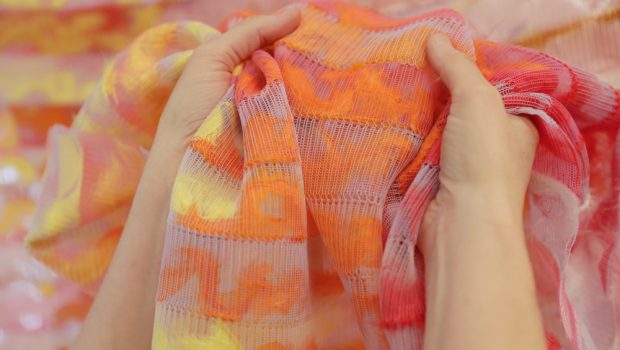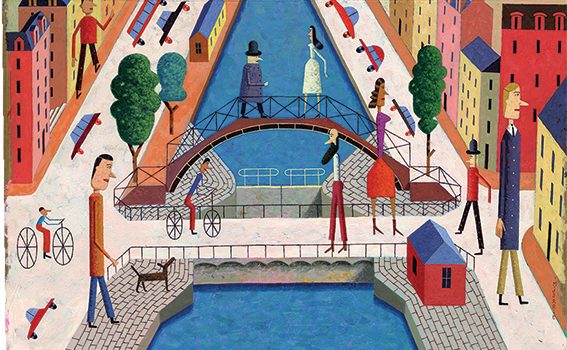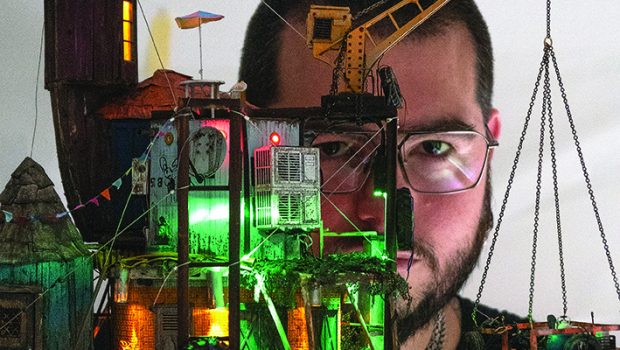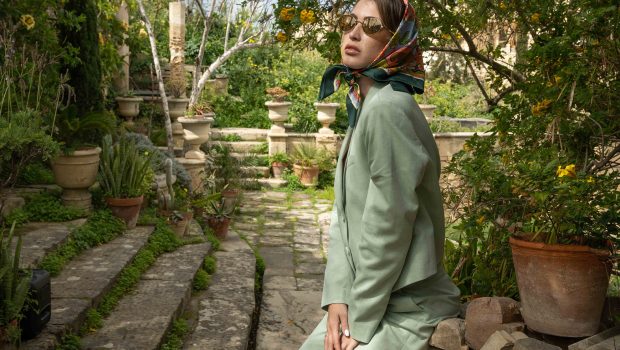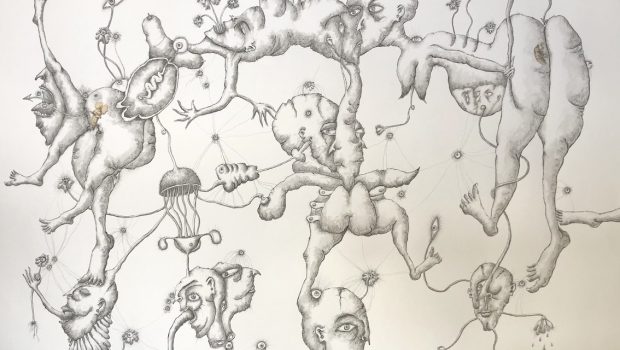Power of now
The best preparation for the future is to live as if there were none
Words: Lisa Borain
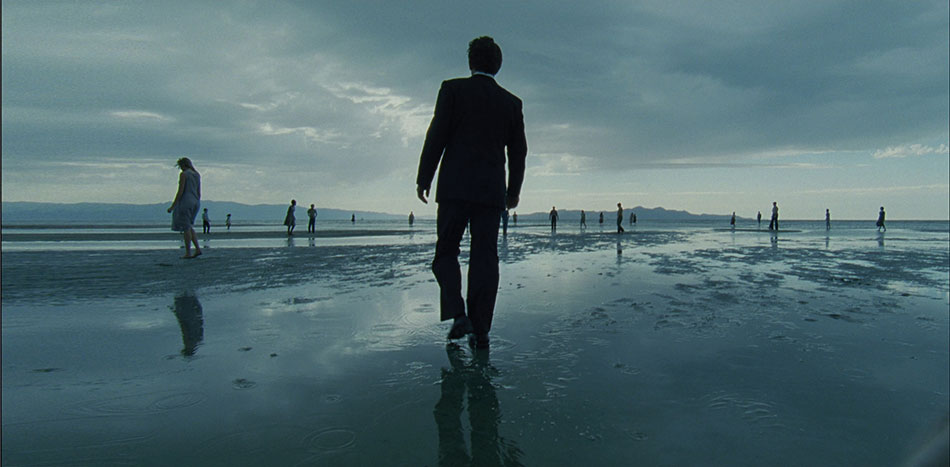
I wake up at night worrying about things. I worry about work in the morning; the bills I have to pay by the end of the month, the rift potentially caused by the last argument I had with my wife. I worry that I am not reaching my full potential as a man, and that maybe I never will. I worry that if I don’t start exercising more, I will have to leave my children early.
When my eyes snap open to these truly useless thoughts, I realise that I am anguishing over all of it in a comfortable bed with my wife asleep next to me, while a roof is over our heads protecting us from the elements. My stomach is full and my children are asleep and safe in the rooms next to ours. This is when I agree with myself to just be okay with what I have at this very moment: shelter, food, health and love. I stop worrying about what happened yesterday or what might happen tomorrow.
It’s not physically possible to live in the past or future, only the present. Yesterday is gone and tomorrow don’t really exist because the present can only be created by our thoughts.
According to Eckhart Tolle, author of ‘The Power of Now’, people’s insistence that they have control of their life is an illusion “that only brings pain”. We carry the past with us like a heavy suitcase. This is the baggage that causes mis-communication and misunderstandings. So much of emotional human suffering is through the anxiety of what we imagine to be true rather than what really is. George Bernard Shaw wrote once, “The single biggest problem in communication is the illusion that it has taken place.”
This emotional baggage causes insecurities and misperceptions. Think about what it would feel like to be emotionally reborn each day. If we could travel through our lives fresh and emotionally baggage free, we would eradicate a lot of this superfluous mental pain. If we had no past events in our lives that made us distrustful, suspicious or cynical, we would take things simply as they are.
Not only does living in the present have a dramatic effect on emotional well-being, but it can also impact physical health. It’s long been known that the amount of mental stress we carry can have a detrimental impact on us. If we’re living in the present, we’re living in acceptance. We’re accepting life as it is now, not as how we wish it would have been. When we’re living in acceptance, we realise that everything is complete as it is. We can forgive ourselves for the mistakes we’ve made, and we can have peace knowing that everything that should happen will.
It’s difficult to focus on living in the now if we have the mentality that we should sacrifice for the pursuit of our goals, which is how many of us have been brought up. Farmers will never have crops if they don’t sow their fields. Doctors will never become doctors if they don’t study medicine. However, cultivating mindfulness, being present in our own lives and being conscious of life as it happens does not mean that we are not creating a better future for ourselves. People tend to be more effectively productive when they’re mindful. By being present everything is enjoyed more; food, friends, family, the world. Further to this, if a farmer is focusing on the one task of sowing his crops rather than worrying about a possible drought next year, the sowing will be done better. If a student of medicine is studying without the worry of failing, they will inarguably study better.

The worst part about living in the past or the future is that we’re giving up our personal power. If we’re not living now, we’re giving up our life and surrendering our power to create. If we’re living in the past, we can’t do anything about it, it’s gone. If we’re worrying about the future, we’re living somewhere that doesn’t exist because it hasn’t happened yet. If we want to change our life, the only place we can do it is in the present. But first we need to accept life as it is.
Too often we identify ourselves with our thoughts and we believe that we are the dialogue inside our mind. Author Eckhart Tolle writes about the “pain-body” consisting of trapped life-energy that has split off from a person’s total energy field, which has temporarily gained control through the unnatural process of mind identification. “Pain can only feed on pain. Pain cannot feed on joy. It finds it quite indigestible… Many people live with a tormentor in their head that continuously attacks and punishes them, draining them of vital energy. It is the cause of untold misery and unhappiness.”
We are much more than just our thoughts – we are the force that moves through our mind, spirit and body. Knowing this helps us overcome our fear of quietness and silence. We can have peace knowing that when our minds are quiet, we are not losing touch with ourselves.
We live in a reality where multi-tasking has become more than necessary. There’s a Zen proverb that goes, “When walking, walk. When eating, eat”. To live presently, it’s important to slowly and deliberately do one thing at a time. Don’t rush the one thing at a time. Move slowly and make your actions deliberate. Focus on the task.
By doing less, the things we single-task on can be done more slowly, more completely and with more concentration. It’s hard to imagine trying to do less but it can be done. It’s a matter of prioritising: figuring out what’s important, and letting go of what’s not. Manage your schedule so that you always have time to complete each task. Don’t schedule things close together – instead, leave room between things on your schedule. This offers a more relaxed schedule, and leaves space in the event that one task takes longer than planned.
It might seem absolutely impossible, but spend at least five minutes every day doing nothing but sitting in silence. Become aware of your thoughts and try to quiet them. Focus on your breathing and notice the world around you. Become comfortable with the silence and stillness. As you focus your attention on your breath, you’ll notice that your breath is neither voluntary or involuntary. When you focus and think about your breath, you come back into relationship with reality, because like breath, reality is both something you do and something that “does you”. It’s co-creative. Practice conscious breathing to bring your mind back to the present.
To stop worrying about the future and focus more on the present, learn to recognise when you’re doing this, and then practice bringing yourself back to the present. Just focus on what you’re doing right now, at this very moment.
A lot of us keep hearing about the importance of meditation, yet don’t feel like we have the time for it. Try to make cleaning and cooking become your meditation. They’re both good ways to practice mindfulness, and can be performed every day. Put your entire mind into the tasks, concentrate, and do them slowly and completely. Keep practicing, and when you ask yourself, “What should I do now, Self?” The answer should be, “keep practicing”. Walt Whitman once wrote, “Happiness, not in another place but this place…not for another hour, but this hour.”
However, could it really ever be said better than by Winnie the Pooh?
“What day is it?”
“It’s today,” squeaked Piglet.
“My favourite day,” said Pooh.
FEEL BETTER: PUT THINGS INTO PERSPECTIVE
Worrying about petty stuff? Take a look at how insignificant we are to the earth and put things into perspective. This clock representation shows some of the major units of geological time and definitive events of earth history. The Hadean eon represents the time before fossil record of life on Earth; its upper boundary is now regarded as 4.0 Ga (billion years ago). Other subdivisions reflect the evolution of life; the Archean and Proterozoic are both eons, the Palaeozoic, Mesozoic and Cenozoic are eras of the Phanerozoic eon. The two million year Quaternary period, the time of recognisable humans, is too small to be visible at this scale.
